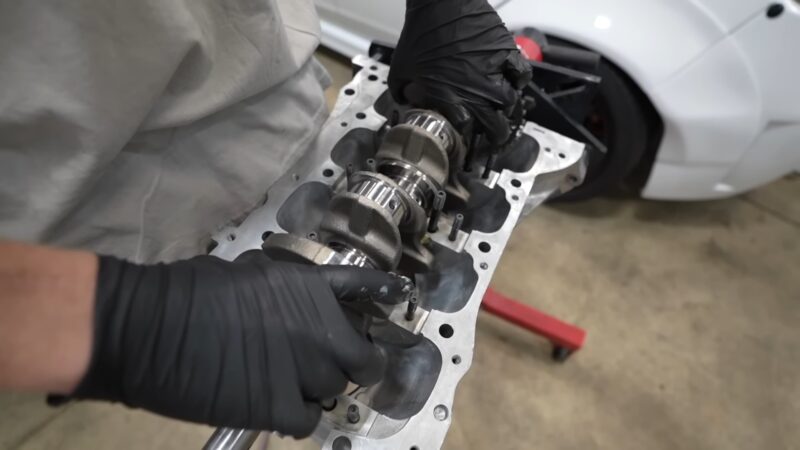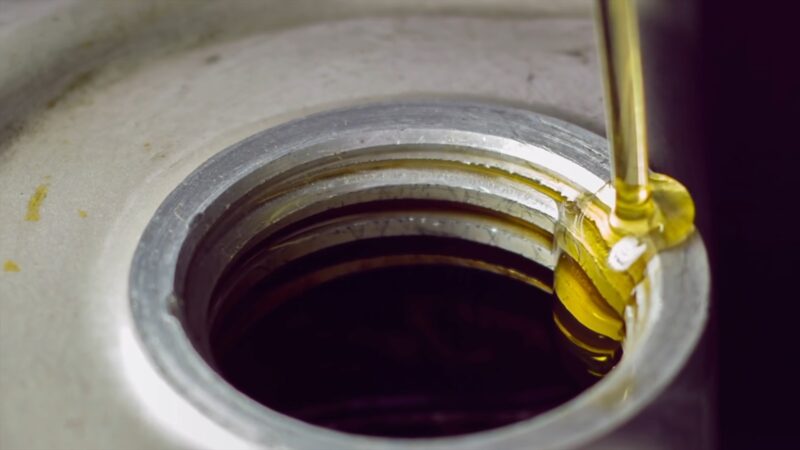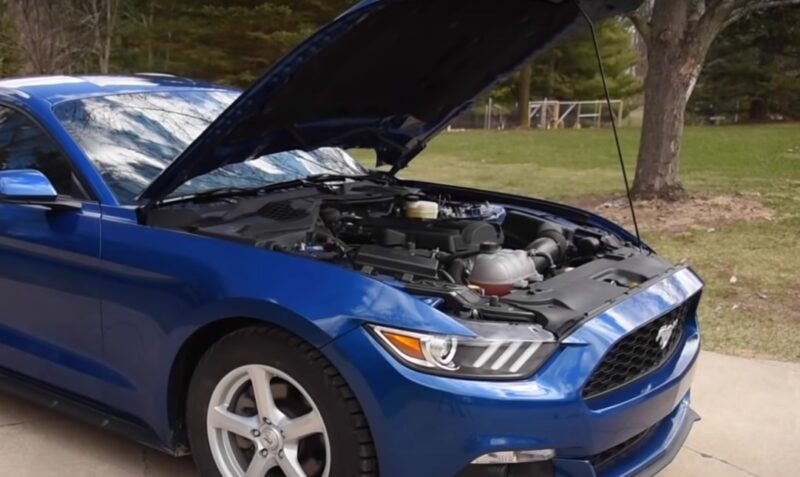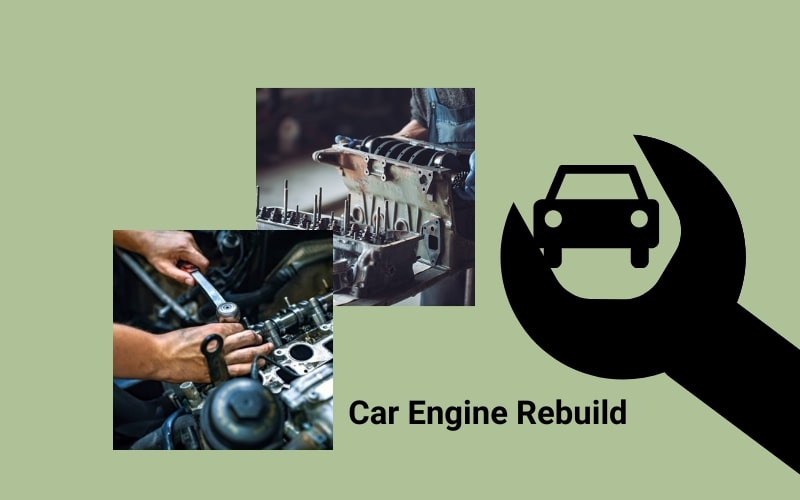Have you ever found your car struggling to maintain its power on flat roads? Or maybe it’s idling so unevenly that you’re constantly worried it might stall at the next red light? Even if you’ve been religiously servicing your engine, the unavoidable wear and tear that comes with accumulating miles can lead to engine problems. These might appear as:
- Excessive smoke puffing out from the tailpipe
- Strange knocking noises originating from under the hood
- Oil levels depleting faster than usual, needing top-ups between oil changes
- The engine overheating frequently
But don’t panic or rush to trade in your car just yet. These issues don’t necessarily mean it’s time for your trusty vehicle to retire. It’s important to consider the cost of engine repair against the expense of buying a new car, especially with your budget in mind. Choosing to revive your current vehicle with a rebuilt engine could turn out to be the more financially wise decision.
Just what does an engine rebuild include, you ask?
Rebuilding an engine typically involves:
- Removing and disassembling the engine block.
- Cleaning and inspecting all the components of the engine to determine their condition.
- Replacing damaged parts with new or refurbished ones that meet OEM standards. This should include piston rings, bearings, gaskets, seals, and lubricants. Other major parts, such as camshafts, crankshafts, and pistons, will be replaced only as necessary.
- Reconditioning of the internal surfaces of the cylinders, as well as the cylinder head so that new piston rings can form a proper seal.
- Reassembling and installing the engine.
Many engine repair technicians say that a rebuilt engine is better than a factory-installed engine. The truth is, a rebuilt engine that has been inspected, cleaned, and now has new parts, will be dependable, reliable, and backed by warranties.
A word of advice: Before choosing the engine repair option that is best for your vehicle, check out the warranties for both parts and labor offered by the auto shop.
Need to know what does an engine rebuild include? Take care of your car’s engine so you are not left stranded somewhere, facing a costly engine repair.
Is your car losing power on level roads? Is it idling so rough that you’re afraid it’s going to stall at a red light? Even if you have tried to take care of your engine with regular service, just normal wear and tear as the miles add up can cause engine problems, such as:
Fortunately, these problems don’t necessarily mean that you should abandon your vehicle and rush out to purchase a new one. Considering the cost of engine repair versus the cost of a new vehicle is important for your budget. The economic benefit of restoring your current vehicle with a rebuilt engine could be the better financial decision for you.
Why Opt for an Engine Rebuild?

Many auto repair professionals assert that a rebuilt engine can outperform the one originally installed at the factory. This is because a rebuilt engine has been cleaned, inspected, and fitted with new parts, making it dependable, reliable, and backed by warranties.
Moreover, an engine rebuild can be a more economical choice compared to buying a new vehicle. It allows you to extend the lifespan of your current vehicle, saving you from the hefty expense of a new purchase.
Before deciding on an engine rebuild, it’s advisable to check out the warranties offered at your auto shop. This will give you a clearer idea of what to expect from the rebuild and ensure you’re making an informed decision.
Preventing Engine Problems: Maintenance Tips

One of the best ways to prevent engine problems and prolong the need for an engine rebuild is by following a regular maintenance schedule. Here are some key points:
- Regular Oil Changes: This is the lifeblood of your engine. Changing the engine oil and filter at the intervals recommended by the manufacturer removes impurities and metal residues that could damage the engine components. Make sure to use the type of oil recommended by your car’s manufacturer.
- Cooling System Maintenance: Overheating can cause serious damage to your engine. Regularly check your coolant levels and have your cooling system flushed according to the manufacturer’s recommendations.
- Use Quality Fuel: Lower quality fuels can leave deposits in your engine, affecting its performance and leading to wear and tear. Whenever possible, use high-quality fuel from reputable sources.
- Warm Up the Engine: Don’t stress your engine when it’s cold. Give it a few minutes to warm up, especially in colder weather.
- Regular Inspection of Belts and Hoses: Worn-out belts and hoses can lead to engine overheating and other issues. Regularly inspect these and replace them as needed.
- Avoiding Overloading: Excess weight can strain your engine, leading to premature wear and tear. Only carry heavy loads when necessary, and never exceed your vehicle’s recommended capacity.
- Driving habits: Driving habits significantly influence road safety and fuel efficiency, and car’s engine health. Responsible and attentive driving is essential for a better driving experience.
Post-Rebuild Care: Ensuring Longevity of Your Rebuilt Engine

After investing time and money into an engine rebuild, you’ll want to ensure its longevity. Here are some tips:
- Follow the Break-in Procedure: Most rebuilt engines require a specific break-in procedure. This might include varying the RPMs and avoiding high speeds for a certain period. Always follow the recommendations provided by your mechanic.
- Change the Oil Frequently: After an engine rebuild, metal shavings and other particulates may end up in the oil. Changing the oil more frequently in the beginning can help remove these and prevent unnecessary wear.
- Regular Maintenance: Continue with regular maintenance as you would with any engine. This includes timely oil changes, checking and replacing the air filter, spark plugs, and other components as recommended by the manufacturer.
- Keep it Clean: Regularly cleaning your engine can help prevent the build-up of dirt and grime that could affect its performance.
- Monitor Engine Performance: Keep an eye on your engine’s performance. If you notice any strange noises, changes in performance, or other irregularities, bring your vehicle to a mechanic immediately.
Bottom Line
Engine problems can be daunting, but they don’t always spell the end for your vehicle. An engine rebuild can be a cost-effective solution that restores your engine to its former glory. However, it’s crucial to understand what the process involves and to weigh your options carefully. Remember, a well-informed decision is always the best decision.
